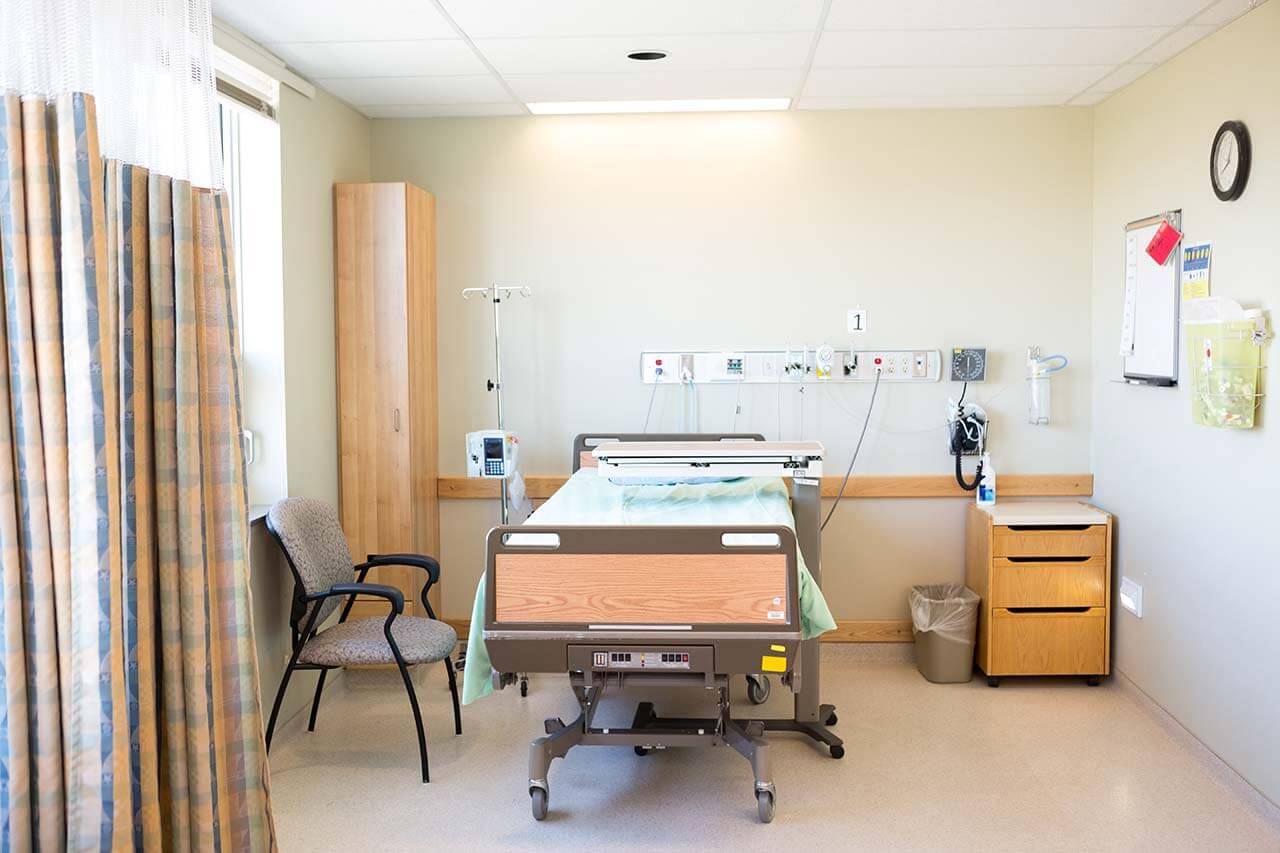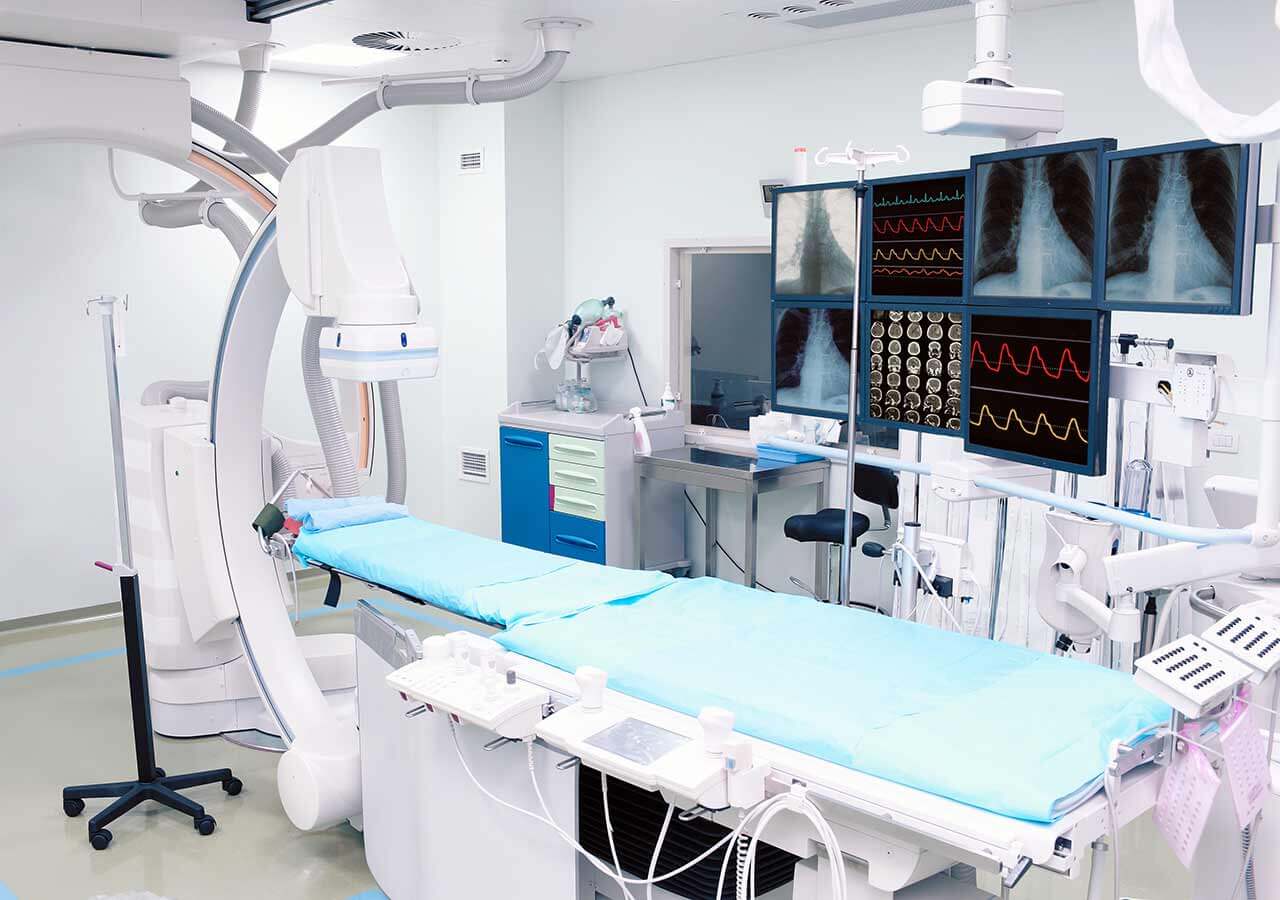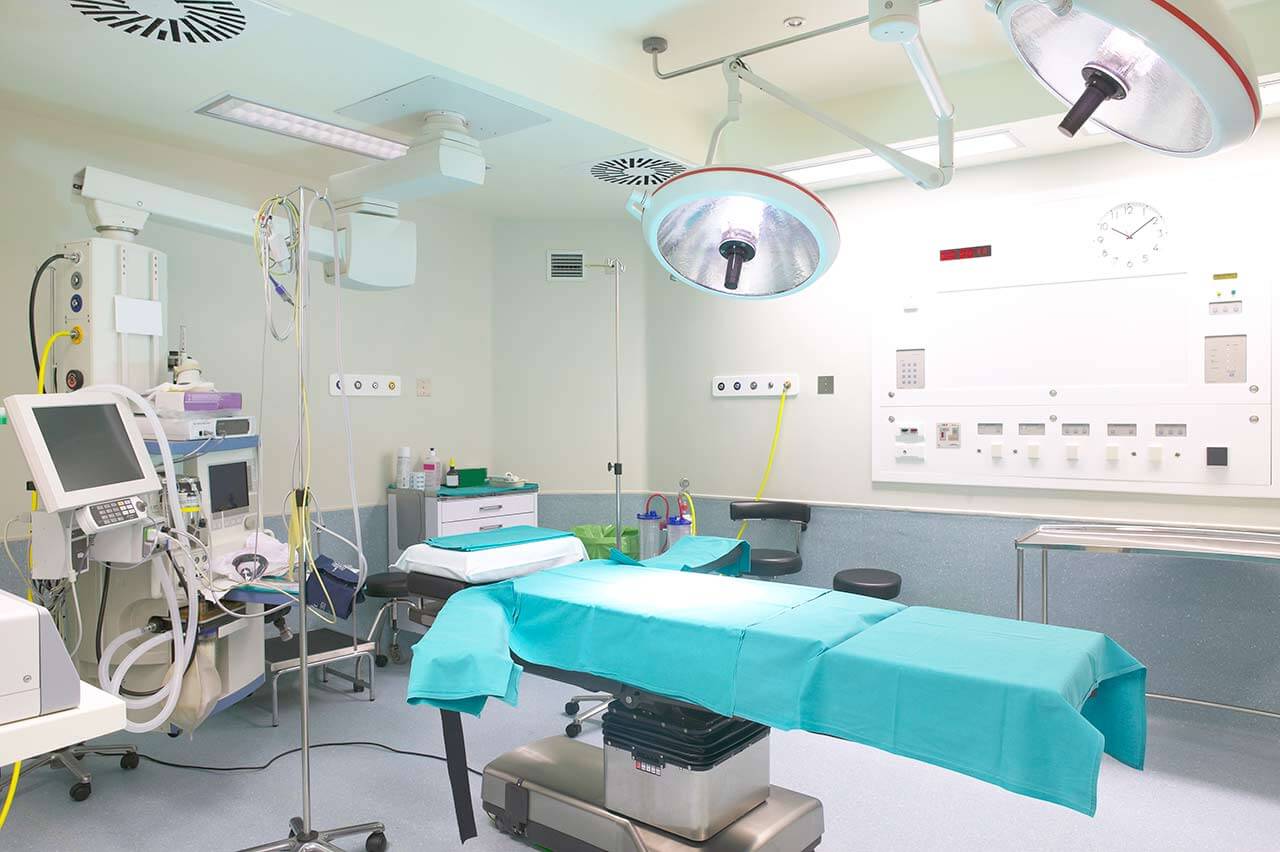
The program includes:
- Initial presentation in the clinic
- clinical history taking
- physical examination
- laboratory tests:
- complete blood count
- biochemical analysis of blood
- Lipid metabolism (HDL/LDL, cholesterol,
triglycerides Lip(a), homocysteine) - blood coagulation analysis (aPTT, PT, INR)
- inflammation indicators (CRP, ESR)
- metabolic status (uric acid, total glucose, HbA1c)
- cardiovascular disease risk markers
- kidney function test (creatinine, urea)
- TSH
- doppler/ duplex receptacles of lower extremities
- angio-MRI from aorta and of lower extremities
- duplex peripheral arteries
- preoperative care
- percutaneous transluminal angioplasty
with stenting (1-2 stents) - blood transfusions (if needed)
- symptomatic treatment
- control examinations
- the cost of essential medicines and materials
- nursing services
- full hospital accommodation
- developing of further guidance
Required documents
- Medical records
- Doppler ultrasound/duplex scanning (if available)
- Angiogram (if available)
Service
You may also book:
 BookingHealth Price from:
BookingHealth Price from:
About the department
The Department of Radiology and Interventional Therapy at the Vivantes Humboldt Hospital offers a full range of services in the relevant areas of specialization. The main diagnostic services include projection radiography, X-ray computed tomography, MRI, ultrasound and angiography. All these methods allow doctors to accurately identify the causes and prognosis of diseases, and therefore, provide appropriate treatment. The head of the department is Priv.-Doz. Dr. Karsten Krüger.
The department also uses a relatively new field of medicine - interventional radiology. Imaging methods are used for the targeted treatment of vascular diseases, tumors or pain management. They allow precise positioning of devices for appropriate intervention and direct them so as to accurately reach the focus of the disease.
The advantage of the department is modern equipment. The entire work process is performed in digital form, which significantly shortens the waiting time for results after research and their interpretation by the doctor. The department uses a very fast computed tomography device with a low level of radiation (radiation exposure).
The department treats vascular diseases, such as occlusive disease of the arteries, widening of the lumen of the main artery, the so-called aortic aneurysms, as well as treatment of tumors, for example, fibroids (benign uterine tumors) and liver tumors. The department maintains close cooperation with the Departments of Vascular and Abdominal surgery, Neurology, Nephrology, Gastroenterology, Cardiology and Gynecology.
The department is the certified center of the German Society for Interventional Radiology (DEGIR). In addition, it is a member of various centers of the network of Vivantes hospitals, which unites specialists from various disciplines: Nord Cancer Center, Nord Center for Vascular Medicine, Fibrotic Center, Gynecologic Oncology Center and Center for Incontinence and Disease Management.
The diseases diagnosed and treated in the department are malignant and benign oncological diseases (eg, liver tumors and fibromas), pathological changes in the blood vessels, occlusion of vessels, aneurysms, vascular bleeding and portal hypertension.
The range of medical services of the department covers:
- Projection radiography
- X-ray studies (X-rays with moving images)
- Ultrasound (sonography)
- CT Dual Source-Dual Energy Flash and 64-slice CT
- Magnetic resonance imaging
- Diagnostic angiography
Curriculum vitae
- 1969 - 1977 School education, Polytechnic secondary school in Neubrandenburg.
- 1977 - 1981 Full secondary school in Neubrandenburg, finished school on 07/01/1981.
- Studied medicine at the Humboldt University of Berlin, University of Hamburg, Bonn University.
- 1993 Defense of doctoral thesis at the University of Hamburg, Department of Medicine, Cardiology. Theme: "Prevalence and mechanism of platelet aggregation induced by streptokinase". Evaluation: excellent.
- 01/01/1995 Admission to medical practice.
- 1999 Specialization in the field of diagnostic radiology.
- 2000 - 2006 Became chief physician.
- Doctoral dissertation, subject: diagnostic radiology. R & D: "Interventional radiological recanalization of peripheral arteries: Ultrasound examination of thrombolysis as a new method and evaluation of new methods for reducing the incidence of complications after percutaneous transluminal angioplasty." Faculty of Medicine, University of Cologne, April 2004
Hospital activity
- 1993 - 1998 University Hospital Cologne, Institute and Polyclinic of Radiological Diagnostics (Director: Dr. K. Lackner).
- 1998 - 1999 University Hospital Cologne, Department II and Polyclinic of Internal Medicine, Cologne University (Director: Dr V. Kronet).
- 1999 - 2006 University Hospital Cologne, Institute and Polyclinic of Radiological Diagnostics at the University of Cologne (Director: Dr. K. Lackner).
- Since 2006, Chief Physician of the Institute of Radiology and Interventional Therapy of the Humboldt and Spandau Hospitals, Berlin.
Main directions of scientific research activity
- Importance of diffusion and perfusion magnetic resonance imaging in early diagnosis of stroke and during the reperfusion phase in thrombolytic therapy (in collaboration with the Max Planck Institute for Neurological Research, Cologne).
- Therapeutic effect of galvanotherapy in breast cancer.
- Studies to optimize angiographic diagnosis of intestinal bleeding.
- Studies on the efficacy of intravascular brachytherapy and prevention of restenosis after PTA balloon of the femoral arteries and shunting with stenoses.
- Minimally invasive treatment of false aneurysm.
- Balloon with drugs for the prevention of restenosis.
Reviewing of Journals, Expert
- European Radiology.
- Research radiology.
- Vascular and interventional radiology.
- Postgraduate medicine.
Membership in professional societies
- German Radiological Society (DRG).
- German Society for Interventional Radiology (DeGIR).
- German Society of Neuroradiology (DGNR).
- Radiological Society of North America (RSNA).
- Cardiovascular and Interventional Radiological Society of Europe (CIRSE).
- European Society of Radiology.
- Radiological Society of Berlin.
- Society for Cardiovascular Diagnosis (DRG).
Photo of the doctor: (c) Vivantes Netzwerk für Gesundheit GmbH
About hospital
An academic clinic of the university medical complex Charité, the Vivantes Humboldt Hospital is one of the largest specialized medical institutions in Berlin. The hospital is famous for its impeccable reputation in the field of traumatology, orthopedics, urology and gynecology, as well as treatment of oncological diseases. Treatment in these fields is performed within the specialized centers at a hospital of national importance.
The Humboldt Hospital has 24 medical departments and about 700 beds at its disposal. Every year, a team of 250 doctors treats about 65,000 patients. The hospital combines high medical qualifications and modern technologies: urologists-surgeons employ operating system Da Vinci, Holmium laser enucleation of the prostate and therapeutic robot, neurological rehabilitation uses exoskeleton for walking training after acute disorders of cerebral circulation.
High quality of treatment is proved by the participation of hospital in the "Initiative of Quality Medicine" (Initiative Qualitätsmedizin, IQM) program.
Photo: (c) depositphotos
Accommodation in hospital
Patients rooms
The patients of the Vivantes Humboldt Hospital live in comfortable single and double rooms.
Rooms are equipped with everything necessary to make the patient's stay in the hospital as convenient and pleasant as possible. It is worth noting the modern and stylish design of the rooms are at the level of a first-class hotel.
Each room has a separate bathroom with toilet and shower. The rooms also have internet access, satellite TV and a telephone.
Meals and Menus
The hospital offers delicious and healthy meals. For lunch, the restaurant offers an abundant selection of meals from 10 menus. There is also a vegetarian and diet menu.
Further details
Standard rooms include:





